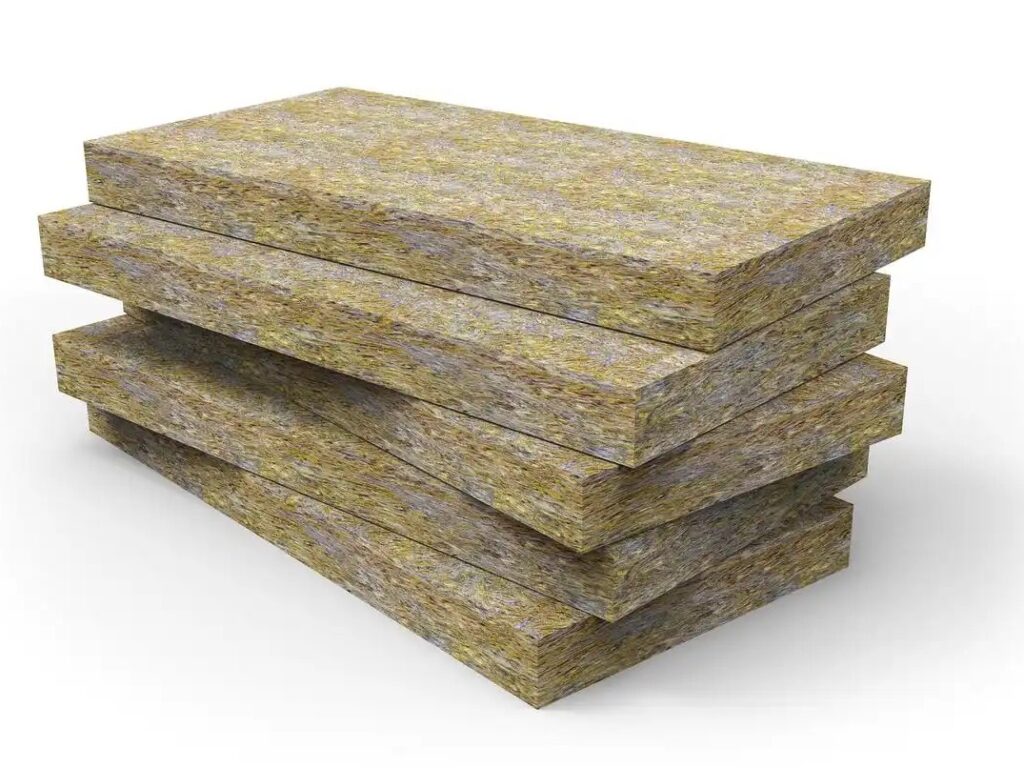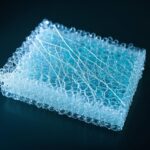
Glass fiber insulation board, a high – performance building material, has been widely applied in various fields such as construction, industry, and transportation, thanks to its unique advantages. This article will elaborate in detail on its outstanding properties and broad application prospects from multiple aspects, including the material characteristics, thermal insulation effect, sound – absorbing and noise – reducing function, fire – safety performance, and environmental – friendly advantages of glass fiber insulation board.
Glass fiber insulation board, also known as fiberglass board (FR – 4) or glass fiber composite board, is synthesized from glass fiber materials and high – heat – resistant composite materials. The raw materials of glass fiber are mainly glass balls or waste glass, which are processed through processes such as high – temperature melting, wire – drawing, warping, and weaving. The diameter of a single glass fiber is only a few to twenty – odd microns, equivalent to 1/20 – 1/5 of the diameter of a human hair. This fine fiber structure endows the glass fiber insulation board with extremely high strength and toughness. Meanwhile, it also has high mechanical and dielectric properties, good heat – resistance and moisture – resistance, as well as excellent processability.
One of the greatest advantages of glass fiber insulation board is its excellent thermal insulation effect. Due to the porous structure inside the glass fiber, this material has extremely low thermal conductivity, effectively preventing the conduction of heat. In the construction field, glass fiber insulation board is widely used in the thermal insulation projects of roofs, walls, and floors, significantly reducing heat loss in buildings. In winter, it can effectively keep warm and reduce the loss of indoor heat; in summer, it can effectively insulate and block the entry of outdoor heat, thus greatly reducing the energy consumption of buildings and improving energy – use efficiency. In addition, glass fiber insulation board is also suitable for the thermal insulation of industrial equipment and pipelines, effectively reducing heat loss and improving production efficiency.
Apart from its thermal insulation effect, glass fiber insulation board also has good sound – absorbing and noise – reducing functions. When sound waves pass through the glass fiber, they will be gradually dissipated due to the friction and gaps between the fibers, achieving the effect of sound absorption and noise reduction. This property makes glass fiber insulation board an optimal choice for indoor sound insulation, especially in places with high requirements for the sound environment, such as cinemas, conference rooms, and recording studios. It can significantly improve the acoustic quality of the environment, creating a quieter and more comfortable working and living environment for people.
In terms of fire – safety, glass fiber insulation board also performs outstandingly. As an inorganic non – metallic material, glass fiber insulation board does not burn and can usually meet the Class A fire – protection standard. In case of a fire, it not only does not produce toxic smoke but also effectively prevents the spread of fire and delays the development of the fire, buying more time for personnel evacuation and fire – fighting. Therefore, glass fiber insulation board has a wide range of applications in the field of fire – resistant buildings, providing a strong guarantee for people’s lives and property.
Furthermore, glass fiber insulation board has significant environmental – friendly advantages. Its raw materials are natural quartz sand, feldspar, etc. After being melted at high temperature and drawn into fibers, the production process does not generate harmful substances. At the same time, as a lightweight material, glass fiber insulation board is easy to transport and install. The construction process is also very convenient, and it can be flexibly cut and fitted to different surface structures according to the needs of the building. This not only reduces the construction difficulty and cost but also reduces the generation of construction waste, in line with the concepts of green building and sustainable development.
The application fields of glass fiber insulation board are extensive, not limited to the construction field. In the industrial field, it is often used for the thermal insulation of equipment such as plastic molds, injection molds, machinery manufacturing, molding machines, drilling machines, injection molding machines, motors, PCBs, ICT fixtures, and table – top grinding pads. In the transportation field, glass fiber materials are also frequently used in the sound – insulation treatment of automobiles, trains, and airplanes. These applications fully demonstrate the outstanding properties and broad application prospects of glass fiber insulation board as a multi – functional building material.
The porous structure of glass fiber insulation board not only endows it with good thermal insulation and sound – absorbing and noise – reducing properties but also gives it certain breathability and moisture – proof properties. In a humid environment, glass fiber insulation board can effectively prevent the accumulation and penetration of water vapor, maintaining a dry and comfortable indoor environment. This property makes glass fiber insulation board more advantageous for applications in humid areas or humid environments.
In addition, glass fiber insulation board has high strength and durability. Its fiber structure enables the material to disperse stress when subjected to external forces, thereby improving the tensile strength and compressive strength of the material. At the same time, glass fiber insulation board also has good weather – resistance and corrosion – resistance, capable of maintaining stable performance in harsh environments for a long time. This makes the application of glass fiber insulation board in outdoor buildings, chemical equipment, and other fields more reliable and long – lasting.
It is worth mentioning that the production process and technology of glass fiber insulation board are also constantly evolving and improving. With the continuous progress of science and technology and the increasing requirements for environmental protection and energy conservation, the performance and application fields of glass fiber insulation board are also constantly expanding. For example, by improving the production process and formula, glass fiber insulation board products with higher thermal insulation performance, better sound – absorbing and noise – reducing effects, and stronger fire – safety performance can be produced. The emergence of these new products not only meets people’s demand for high – quality building materials but also promotes the sustainable development of the construction industry.
In conclusion, glass fiber insulation board, with its excellent thermal insulation effect, good sound – absorbing and noise – reducing functions, outstanding fire – safety performance, and significant environmental – friendly advantages, has been widely applied in multiple fields such as construction, industry, and transportation. With the continuous progress of science and technology and the increasing requirements for environmental protection and energy conservation, the application prospects of glass fiber insulation board will be even broader. In the future, we have every reason to believe that glass fiber insulation board will continue to play an important role in the field of building materials, creating a more comfortable, safe, and environmentally – friendly living and working environment for people.

